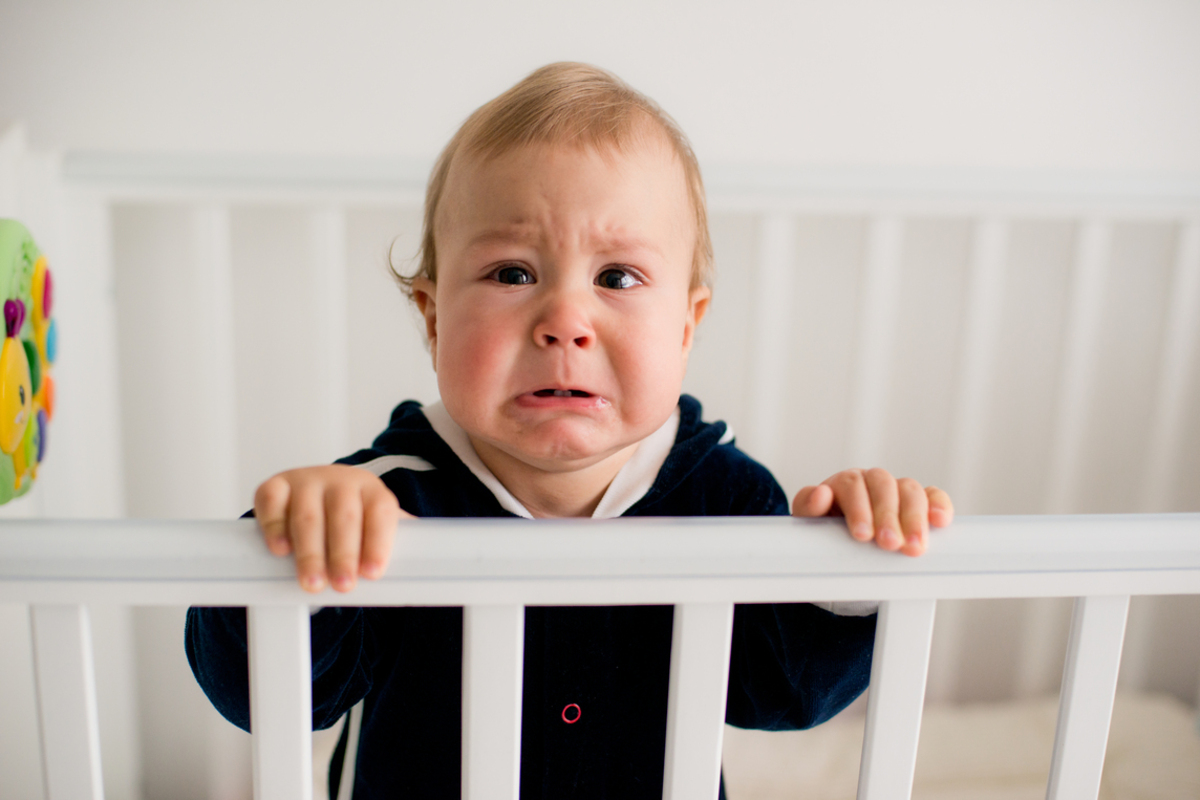If you're a new parent, the topic of infant sleep training will come up. You'll have people suggest you do it with your baby, there will be folks telling you how evil it is, you'll see it mentioned in "new mom groups" on the internet, and you may seek info about it out yourself — because let's be honest, who doesn't want their baby to sleep?

Any new parent who wades into so-called "attachment parenting" waters even a little will quickly come across the message that infant sleep training is cruel and may even leave their baby with lasting negative mental health consequences. Perhaps this — the total opposite of the idea that infant sleep training is harmful — is why:
"When your baby is tired and sleepy enough to become irritable, don't reinforce irritability by allowing the cause and effect to continue. Put the little one to sleep. But what of the grouch who would rather complain than sleep? Get tough. Be firm with him. Never put him down and then allow him to get up."
This passage from the controversial book To Train up a Child by Debi and Michael Pearl, a couple I can only describe as Christian fundamentalists, appears in a section they titled "a switch at nap time saves time". Yup, these two actively encourage new parents to spank their children in infancy, including with objects like switches, in the process of "training" them to be "obedient" and "Godly".
What is wrong with infant sleep training? Look at the abusive philosophy the Pearls advocate, and you have your answer. We now know that spanking is harmful, causing long-term mental health issues and behavioral problems. The UN Commission on the Rights of the Child has described it as "legalized violence against children", while the American Psychological Association warns against it.
Sleep training done right can have benefits
I'm not saying this because I sleep trained my children as infants and want to justify the practice to myself as some hardcore attachment parents would no doubt say, because I didn't. My babies fell asleep in my arms or in their baby carriers, after which I sneakily and softly laid them down — sometimes succeeding, sometimes not. They weren't "sleep trained" until after they could understand what I meant when I said "it's bedtime now", and could communicate their needs and feelings.
If you are indeed quite desperate for your baby to sleep, sleep training can, research shows:
- Help your baby sleep "better" — with more predictable patterns, and over the longer-term, with less crying and distress.
- Help your baby develop a "good temperament", become less distractable, and and have an easier time adapting to new situations.
- Reduce parental depression, because sleep deprivation really isn't good for you, either.
So, how do you go about responsible, compassionate, sleep training with your baby?
Most experts recommend that new parents allow newborns to become sleepy in the comfort of their arms, but that they put the baby in their crib before they fall asleep. Establishing a set routine can help with the process. This doesn't necessarily mean deciding when your baby should sleep and then putting them to bed at that time — it can also mean observing your newborn's natural patterns and, for instance, singing to them when you notice they are getting sleepy, or giving them a nice bath before you put them in their crib at night. This is "sleep training lite". You're simply helping your baby associate certain events with going to sleep.
Once that period of time is up, check on your baby if they are still fussing. Reassure them and tell them something nice, without picking them up. This also allows you to check that your baby is OK. Again, leave the room. Rinse and repeat until the baby falls asleep. If you hear nothing, don't immediately go to check, because your baby may still be awake and ready to resume crying when they see you.
Research suggests that babies generally learn to fall asleep more quickly and with less drama after about a week. This method differs from the "cry it out" method in that you don't leave your baby to cry indefinitely until they go quiet or fall asleep; you're still there to reassure your baby periodically and to check on their wellbeing.
- To Train Up a Child, Michael and Debi Pearl, December 1st 1994, No Greater Joy Ministries. ISBN 1892112000
- Photo courtesy of SteadyHealth


Your thoughts on this